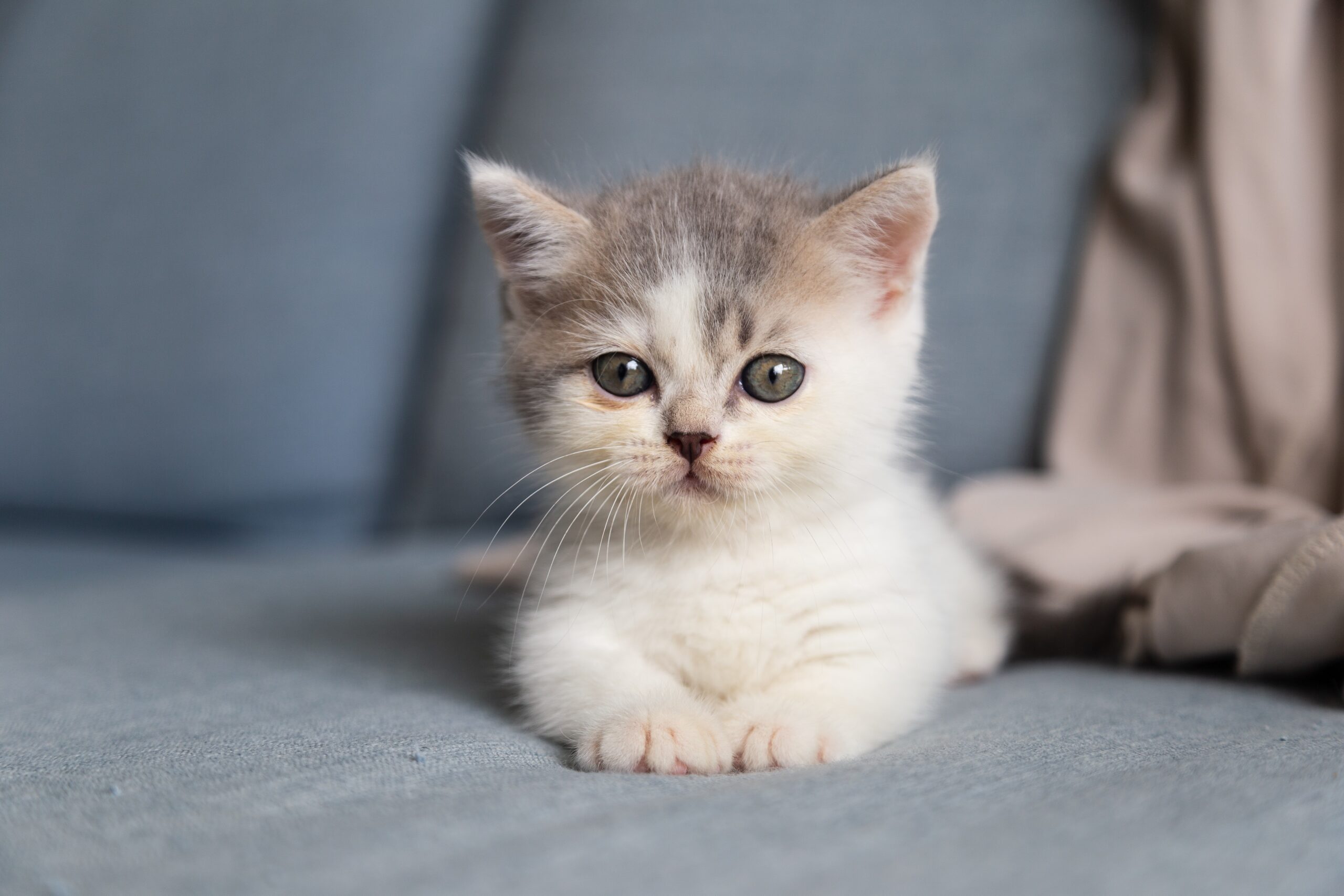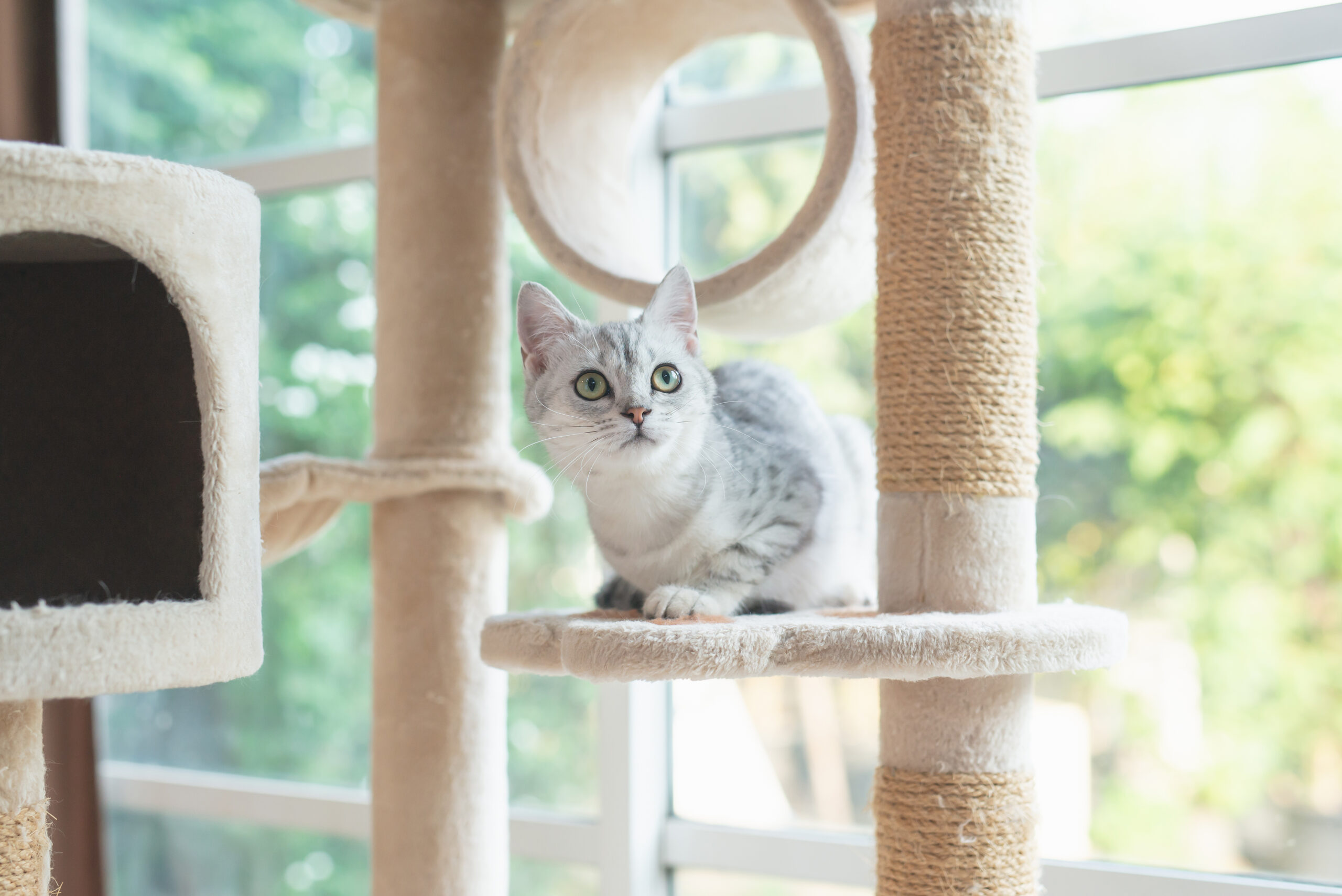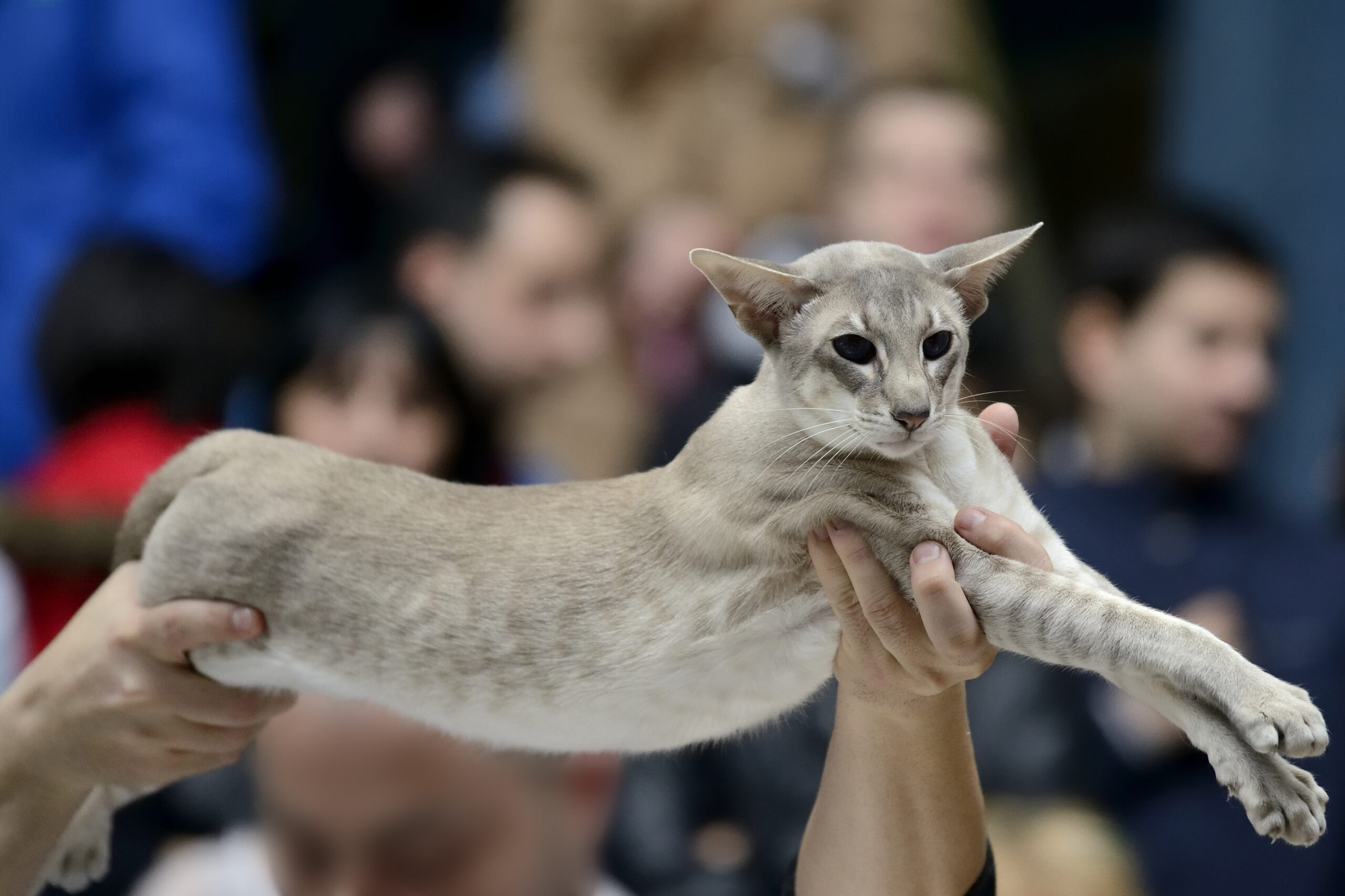The Responsible Cat Owners Guide
Message
So you’ve set your heart on getting a cat or kitten. Good choice! Cats make fantastic pets. Cats can be cute, funny, and affectionate pets, and are so adaptable that they can live just about anywhere.
Maybe you’ve never had a cat before, or perhaps you remember your parents fluffy old cat from your childhood. Whatever the case, you should still keep in mind that a pet cat is a big responsibility. Once you’ve brought the kitten home and the novelty has slowly worn off, you’ll have a living, breathing animal who is relying on you for all it’s basic needs: food, water, healthcare, and so on.
Even the most concerned cat owner simply can’t know everything about looking after a cat, and that’s why we’ve put together this handbook for cat owners. We hope that this handbook will start you off on the right foot in your journey to become a responsible cat owner. We wish you and ypur feline friend the best of luck!
Proper Nutrition and Water
Your cats needs food and fresh water. He or she must have access to fresh water at all times, and fresh food at regular intervals. Although cats will generally eat most brands of cat food, it’s better to find a diet that is suitable for your cat. A proper balanced diet is important for your cat’s growth and development (especially for kittens) and longterm health. Good food will help your cat to feel healthy and energetic, as a good diet is vital for everything from healthy fur to proper organ function.
You will need to keep your cat’s age, size, and breed in mind when choosing a diet for him/her. As a rule, kittens and younger cats need to be fed two or three times a day. Older cats will be fine with two meals a day. Cats usually prefer to nibble at their food, leave it for a while, and come back to eat it periodically, so two good-sized meals are enough to keep your cat going each day.
You can feed your cat wet food, dry food, or a mix of the two. Dry food can help to keep your cat’s teeth clean, so if you have to choose, go with dry food. Some cat owners prefer to feed their cats raw meat, but consult your vet first to make sure that your cat still gets a balanced diet: raw meat may be lacking in certain minerals and vitamins, and you’ll need to give your cat supplements.
Particular cats may need special food, so make sure to consult with your vet to see what’s right for your cat. Sex, age, and even breed can affect a cat’s nutritional needs, and your vet can advise you on what type of food or diet will benefit your pet.
A cat should be neither too fat nor too thin. Obesity is a growing problem for pets as well as people. Some cats are prone to weight gain, and it is surprisingly easy to overfeed your cat and make them fat. A fat cat may look cute or funny, but being overweight will have a detrimental effect on your cat’s health. Overweight cats may have problems ranging from joint pain to heart failure. An overly thin cat is not much better and will also suffer from health problems.
Never feed your cat the following:
- Onions
- Garlic
- Chocolate
- Dairy products (some cats are lactose intolerant)
- Grapes and raisins
- Alcohol
- Caffeinated drinks (tea, coffee, energy drinks)
- Macadamia nuts
- Sugary foods
- Fatty foods
Grooming
Cats have a strong instinct to keep clean, and will devote hours each day to grooming themselves. That said, it’s a good idea to get your cat used to be brushed and bathed when they are kittens.
Although most short-haired cats can take care of their own fur, long-haired cats or speciality breeds such as hairless cats may need some help. Long-haired cats may develop knots and tangles in their coats, and without help these can become large mats that pull on the skin, trap dirt, and will eventually have to be cut off. You may also need to comb your cat’s fur to check for external parasites such as fleas. If you have a particularly messy cat, then it may need regular baths. Brushing your cat is also a good opportunity to check your kitty for any problems such as cuts or lumps.
For all these reasons, it’s better to get your kitten used to brushing and washing, even if you won’t need to bathe and brush then that often.
You can buy special shampoo for your cat. Normal human shampoo is often scented and contains chemical that irritate a cat’s skin and eyes. Some shampoos will just clean your cat, but you can also buy shampoo to remove external parasites.
You can buy a soft bristle brush for your cat’s fur, and a flea comb is a good investment (just in case!). You should also get some claw clippers: although like to sharpen their claws by scratching surfaces (hopefully their scratching post!), it’s good to keep an eye on your cats claws. If they start growing too long, you can clip the tip of the claw off to prevent ingrown claws.
If you have a cat with a very long or thick coat, or wish to take your cat to cat shows and competitions, you may need help from a professional groomer. A cat groomer can also clip your cat’s long fur if it becomes too difficult to maintain, or if you think your cat can’t cope in hot weather.
Socialisation
Proper socialisation is vital for a cat’s mental development and well-being. Without socialisation, your cat may become aggressive or nervous, and afraid of new situations and people. This can ruin your relationship with your pet, and even put them in harm’s way.
Socialisation is a process in which a cat learns how to relate to the people and animals around it. The most vital period for socialisation is the first two months of a kitten’s life. A kitten’s experiences during this time will affect his or her behaviour as they grow up. Your kitten will learn what experiences and things are normal and safe; anything else will be treated with suspicion. It’s important to expose your young cat to new people and experiences during this period.
Cats do not have an innate need to be with people or to seek them out. This means that you’ll have to expose your kitten to people as much as possible during their first few months. You can spend time interacting with your kitten, stroking, feeding, and playing with them. You can also invite friends and family to spend time with your kitten. Your kitten will begin to associate people with good things (treats, playtime, and so on), and will want to socialise with them.
Keep in mind that some cats are more sociable than others. This is often due to personality: some cats are social butterflies, while others are more retiring. Certain breeds have a reputation for being shyer or friendlier, but with patience, you should be able to socialise just about any kitten. Older cats can be a little more difficult to socialise. You’ll need time and patience. With very shy or aggressive cats it is worth consulting a professional animal trainer or behaviourist for help.
Exercise and Training
The stereotypical cat is lazy and sleepy, but they still need exercise to keep them fit. Although some cats can be taught to walk on a leash, not all cats take to it. Luckily, play is a very good opportunity for exercise. Most cats will be fine with 10 to 15 minutes of intense exercise daily. Kittens and younger cats will enjoy chasing toys: you can use fishing rod toys, or throw toys for your cat to chase. You can also provide a scratching and boxes to climb on, and use toys to encourage your cat to climb on them. High energy cats may also enjoy using a cat wheel; you can use cat nip or toys to encourage your cat to use it.
Cats have a reputation for being impossible to train or stupid. This is unfair. The problem is that many cat owners expect their cat to learn tricks or commands the way a dog would. Cats just don’t learn or behave the way dogs do. Cats are more independent and less-eager to please, but they are intelligent and capable of learning.
Litter Box: Your cat must learn to use the litter box. If you start teaching them to use it when they are kittens, they will want to keep using it as adults. Start by keeping your kitten in a small room with a clean litter box. Make sure your kitty has plenty of fresh food and water. Cats prefer to bury their waste, and your kitten may attempt to use the litter box to do this. If your kitten leaves waste outside of the litter box, move the waste into the box. Your kitten will soon learn that it should use the box.
Be sure to clean the litter box frequently, as a cat will not want to use a filthy litter box (the way you wouldn’t want to use a filthy toilet). Sometimes you will have to try different types of cat litter or styles of litter box or tray. If your cat is still having problems, consult a vet to check for underlying medical issues.
Scratching: Cats have a natural urge to scratch things: it helps them to stretch, sharpen their claws, and mark their territory. Unfortunately, they often scratch things we don’t want them to, such as furniture. Punishing your cat won’t teach them anything; it will just make him/her scared of you. Instead, provide your cat with a proper scratching post, and reward your cat for using it.
Aggression: Sometimes cats get rough during play and may bite or scratch. If your cat does this while you’re playing, make a loud noise such as clapping your hands. This will startle your cat. Then simply walk away. If you do this every time your cat plays rough, they will learn that being rough means no more playtime.
Identification
As a responsible cat owner, you’ll need to make sure that your cat has proper identification. Cats are prone to wandering, and even indoor cats may escape and become lost. It’s better to be safe than sorry, so proper identification is a must.
The two main forms of pet identification are collar ID tags and microchips. The two can be used in conjunction, which is useful in case your cat loses his or her collar.
Collar ID tag: You can buy a collar tag at most pet shops, and easily attach it to your cat’s collar. The tag is usually made of metal, but you can also buy plastic tags. The tag should have your cat’s name and your contact information: a phone number is ideal as it will fit neatly on the tag.
Microchip: A tiny microchip is injected by a veterinarian. Once injected, the microchip will stay under the skin without causing pain or discomfort to your cat. If you cat goes missing and is taken to an animal shelter or a veterinary clinic, they will be able to scan the microchip, which will reveal your cat’s ID number. This will be registered to your address, enabling the vet or other official to contact you and return your cat.
You will need to register your microchip number at your local veterinary clinic. Be sure to update your address if you move house so that your cat can easily be returned to you.
Even if your cat is chipped, your cat should still wear a collar and tag. This will enable people to find and return your lost pet without having to go to a veterinary clinic or animal shelter first.
Healthcare
As a responsible cat owner, you must provide appropriate veterinary care for your cat. You’ll need to find a local vet clinic to take your cat to. There you’ll be able to schedule your cat’s vaccinations and check-ups. A strict vaccination schedule is important to prevent your cat from catching or spreading preventable diseases.
If you cat falls ill, you will be responsible for the cost; however, some insurance firms offer pet insurance, which will cover some of the cost. This is very useful in case of any emergencies. Nevertheless, be aware that owning a cat is a financial commitment, and it’s a good idea to set some money aside for veterinary care.
Your Cat and the Community
As a responsible cat owner, it’s up to you to respect the laws of your country with regard to your cat. Some countries require cats to be micro-chipped and collared. In some countries, a curfew is imposed on cats: your cat is not allowed to be outside at certain times. If your cat is a nuisance, your neighbours have the right to complain and take action against you. Do your research and make sure that you in compliance with the rules and regulations of your area.
Thank You
Thank you for reading our handbook. We hope that it has been helpful to you, and has given you a better understanding of what is involved in being a Responsible Cat Owner. We wish you and your new cat all the best. Please contact us if you have any further questions.
Having a Cat
- Having a cat can be an amazing (or, if we might say, purr-fect!), but do consider the following before you take the plunge:
- Getting a cat is an investment of time and energy. Although older cats can cope with being on their own for part of the day, kittens need your company to be proper socialised. And even the most independent cat needs regular meals! If you work long hours, you may need to find a cat-sitter to help look after your cat.
- Consider whether the cat you’re interested in suits your lifestyle. A hairless breed will not enjoy life in a cold climate with no heating. A fluffy long-haired cat will not do well in a hot climate with no air conditioning. More importantly, a cat can impact important life decisions, such as whether to move house or even whether to have a baby.
- Do your research before deciding what breed of cat to get. You can attend cat shows and talk to cat breeders and veterinarians to help you with your choice. Do not rule out mixed-breed or rescued cats as potential pets.
- Cats usually live for 12 to 18 years. To put this in perspective, that’s longer than many human relationships last: marriages that end in divorce typically only last for 8 years!
- A cat is a financial commitment. Food, toys, cat litter, visits to the vet, vaccinations, catteries, collars, tags: all of these things cost money.
- Be sure to provide your cat with his/her own safe space, where they can go and rest without being disturbed. Even the most sociable cats need time alone. A box with a cosy blanket is an ideal nook for your cat to retreat to.
- The litter tray must be placed far away from your cat’s food and drink. Clean the litter tray as often as possible. You can remove solid waste daily, and change the litter every week or so. This keeps the tray clean and reduces the odour.
- Treat your cat as a member of the family. They have a series of complex emotions, and are living, feeling creatures.
- Do not buy a cat as a Christmas present. They are living animals, not plush toys, and the busy holiday season is not a good time for a new cat or kitten to settle into his/her new home.
- If you cannot care for your cat any longer, it is better to find them a new home. Contact your vet and local animal welfare organisation: they will help you find a solution. Some people mistakenly think that they can leave their cat “in the wild” to fend for itself, but a domestic cat will not survive for long. It is a criminal offence to neglect or abandon your cat.
- Most countries have strict animal welfare laws. Mistreating your cat can lead to prosecution for animal cruelty. Authorities may confiscate your cat, and you may be fined or even incarcerated depending on the offence.





















